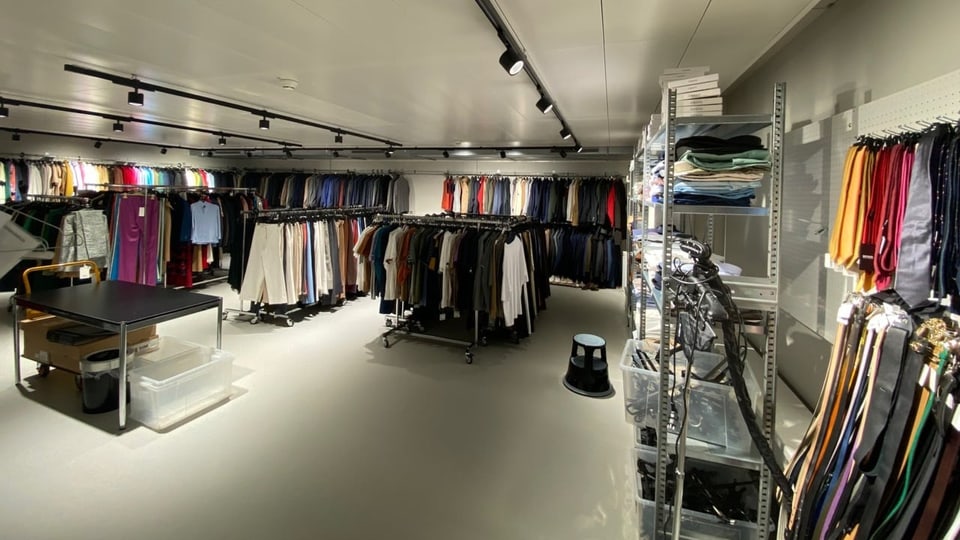contents
A listener notices that TV presenters don’t close the bottom button on the Veston. Where does it come from?
Florian Inhauser in the Tagesschau or Arthur Honegger at 10vor10 wear a suit when moderating in the SRF studio. The bottom button on the men’s veston remains open. “Why is there this buttonhole on the jacket if nobody needs it?” A listener of the SRF consumer magazine “Espresso” wants to know.
SRF has the “Costume & Styling” department for fashion questions. This clothes all moderators who are in front of the camera. Caterina Soldani works there as styling director. In an interview with “Espresso”, she explains where the custom with the open button on the Veston comes from.
Espresso: It doesn’t matter whether it’s a jacket with two or three buttons. Our listener notices that the bottom one is never closed. What is the reason?
Caterina Soldani: It’s a historical tradition. One theory goes back to the British King Edward VII (1841-1910). It is said that he was a bit overweight and therefore left his bottom button undone. So it was more convenient for him, even for riding.
Today, hardly anyone can really say why that is actually the case.
He also did this with the gilet under the jacket. The men in the British Empire then imitated this, also out of respect. Over time, this has become established and has become a tradition. And today hardly anyone can really say why that is actually the case.
You said it was a theory. So there’s another where this could be coming from…
From riding. Men wore jackets on horseback. And that’s when they quickly realized – especially if someone had a tummy – that it’s better if you leave the bottom button undone. This has become established in everyday life and has become a look.

Legend:
There is a large selection of clothing items in the SRF showroom. Caterina Soldani puts together outfits with her team here.
SRF
And that’s where these fashion rules came from: The bottom button remains undone. When sitting, you unbutton the Veston and close it again as soon as you get up. And if there are three buttons on a jacket, the top button can also remain undone. As a man, do I still have to strictly follow these rules these days, otherwise I’ll be considered a fashion philistine?
No, I don’t think so. It also depends on what context you are in. If you are in a meeting where you have to negotiate hard, then a closed Veston gives security.
With the buttons, every man can do it the way he feels comfortable these days.
It’s like armor. But that doesn’t have to be the case at all. With the buttons, every man can do it the way he feels comfortable these days. It used to be a dictate, but fashion is moving away from that more and more.
There are these typical “suit occasions”, funerals, weddings or job interviews. What can a man pay attention to if he doesn’t want to do anything wrong?
It also depends on where you apply, at a bank or somewhere else.
In any case, a suit should not be too tight. He can sit a little loose. The fashion with the very tight suits is really over. It is important that you feel comfortable in it. A lot of men’s suits have elastane in the fabric, which doesn’t show. Our sports presenters, for example, love suits like this because they are more flexible in them. There’s nothing worse than feeling extra constrained in a suit when having a serious conversation. So convenience is very important.
The color is also important depending on the occasion. I wouldn’t wear a white suit to a funeral, for example, but any shade of blue and black would do.
The interview was conducted by Oliver Fueter.
